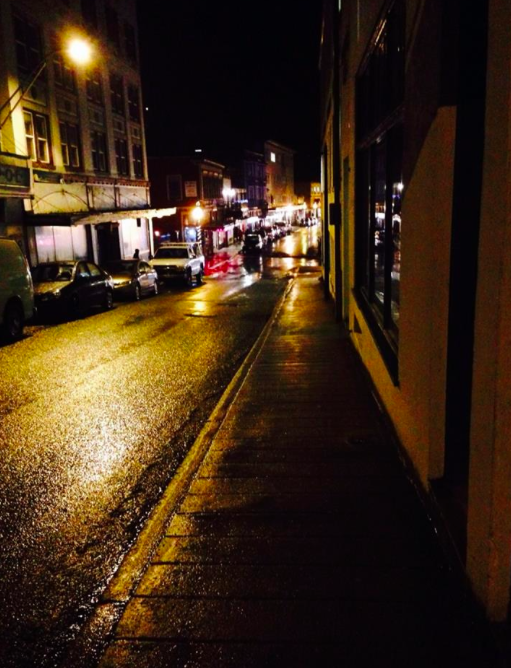
By WIN GRUENING
When Mayor Ken Koelsch recently proposed a city ordinance prohibiting camping in downtown Juneau to help resolve on-going issues with our homeless population, there was significant public reaction.
Many believe the mayor’s proposed action is long overdue, but others accused him of being insensitive and cold-hearted. A fair and complete understanding of the complex issues involved might dampen the misinformation being spread through social media.

This issue is not unique to Juneau. Over the past several years, due to public health and safety concerns, Anchorage and Wasilla have been forced to close homeless camps.
Problems associated with Juneau’s chronically homeless, most of whom are chronic inebriates or have mental health issues, persist throughout the downtown area. In response to complaints, police have worked to stem the number of negative incidents caused by some members of our homeless population. Yet complaints, especially among visitors and business owners, have multiplied. This issue reflects directly upon our community and affects all of us — whether resident or visitor.
Our police force, EMTs, local hospital and a whole host of social service agencies and nonprofit organizations have struggled to balance the needs of this population and still address concerns affecting visitors, residents and business owners. The cost of doing this has been tremendous.
In response, the Assembly invested $1.5 million to aid in construction of a 32-bed Housing First project to house and treat the chronically homeless. This facility — scheduled to open in a matter of months — will help relieve the situation by providing alternatives for some of the homeless.
But recently, the problems have become more pervasive and disturbing. According to some merchants, the number of homeless on our streets has increased and is represented by a younger more violent group of individuals who are unmanageable and often under the influence of drugs such as meth and heroin. Vandalism is increasing, and threatening behavior is becoming more commonplace.
These newcomers are camping on private property in business entryways, getting into fights, vandalizing property, defecating in public areas, littering, and intimidating shoppers and downtown workers. Not surprisingly, residents and visitors have expressed fear for their safety when walking downtown — especially at night.
As recently as last week, two legislative staffers moving into rentals on South Franklin had possessions stolen from them during the day. After several threatening incidents, the executive director of the Glory Hole has considered arming herself with bear spray.
Opponents of the no-camping ordinance are worried the homeless will be forced to migrate into residential areas or other locations due to the lack of available shelters and campgrounds.
Recognizing this, Mayor Koelsch and staff are simultaneously working on alternatives, near fruition, for homeless individuals who are unable to find shelter. Negotiations are underway with the Salvation Army to provide an emergency warming shelter that would be available when temperatures fall to low levels. Other efforts include leasing campground space near downtown that would be open during the winter months.
Unfortunately, even when shelter and treatment alternatives are available, many of the homeless choose not to take advantage of them and prefer to stay camped on private property. Juneau Police Department Chief Bryce Johnson testified recently that during a voluntary outreach program in which officers and social service agencies talked with people camped in the doorways of downtown businesses, only one person voluntarily agreed to get up and move into a shelter.
And this is the crux of the issue. The police are unable to legally remove anyone from private property without the owner filing a formal complaint. Most often, this situation occurs in the evening after the business has closed and can be an expensive and time consuming process.
This is unfair to working families and proprietors owning downtown businesses and their employees who must work under these conditions.
Hence the need for a no-camping ordinance in the downtown core. According to JPD Chief Johnson, while violators would only be guilty of an infraction, this will give police a tool to help move people to social services and reduce potentially volatile situations.
Think about this. If a homeless individual camped on your front porch, how long would you tolerate it before you called the police? Yes, the homeless deserve compassion and may be homeless due to circumstances beyond their control. But they are not helpless and must be willing to respect private property and not be a threat to the general public.
Government cannot address this alone as budget pressures continue to reduce services. Those expressing concern for the plight of our homeless can help by directing their generosity and concern to helping raise funds for additional shelter space and social services.
Mayor Koelsch deserves credit for tackling this messy and uncomfortable issue head-on. This shouldn’t be an issue where anyone needs to take sides. Everybody is trying to achieve the same thing — a safe inviting downtown district and helping our homeless population with basic needs and services. The proposed ordinance is just one step in accomplishing that. Let’s work together on the rest.
Win Gruening was senior vice president in charge of business banking for Key Bank. Born and raised in Juneau, he is active in civic activities at the local and state level.